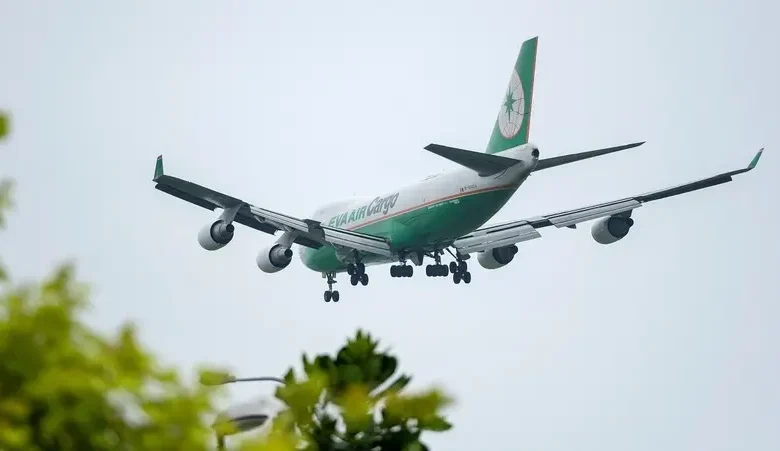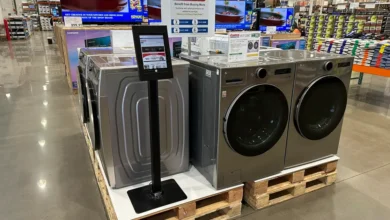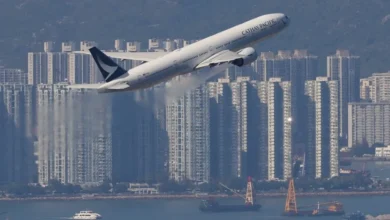Rise of fast-fashion Shein, Temu impacts global air cargo industry

The rapid rise of fast-fashion e-commerce retailers such as Shein and Temu is upending the global air cargo industry, as they increasingly vie for limited air-cargo space to woo consumers with rapid transit times, more than ten industry sources said.
Shein, PDD Group’s Temu and ByteDance’s TikTok Shop, which recently began online shopping in the US ship the majority of their products directly from factories in China to shoppers by air in individually addressed packages.
And their growing popularity — Shein and Temu together send almost 600,000 packages to the United States every day, according to a June 2023 report by the US Congress — is boosting air-freight costs from Asian hubs like Guangzhou and Hong Kong, making off-peak seasons almost disappear and causing capacity shortages, the sources said.
“The biggest trend impacting air freight right now is not the Red Sea, it’s Chinese e-commerce companies like Shein or Temu,” said Basile Ricard, director of Greater China operations at freight forwarder Bollore Logistics.
According to data aggregated by Cargo Facts Consulting, Temu ships around 4,000 tonnes a day, Shein 5,000 tonnes, Alibaba.com 1,000 tonnes and TikTok 800 tonnes. That equates to around 108 Boeing 777 freighters a day, the consultancy said.
Driven by robust demand for their low-priced apparel like $10 tops and $5 biker shorts, Shein alone accounts for one-fifth of the global fast-fashion market, measured by sales, and has fueled growth of China’s e-commerce industry, according to Coresight Research.

Shein and Temu’s growth is squeezing out space for other industries on air freighters, just as global firms are scrambling to find alternative logistics options due to the Red Sea disruptions.
“When the Suez Canal (crisis) hit, there was no capacity to be bought, because e-commerce has bought it all,” said an
executive at an air cargo carrier, who requested anonymity due to industry sensitivities.
Pronounced demand for air freight from fast fashion started increasing dramatically in the second half of last year, several
sources said.
A German logistics source said even large tech firms like Apple transport only 1,000 tons maximum a day and the growing cargo demand from fast fashion could push out traditional long-term customers, as they vie for limited air capacity.
Some air-freight carriers have responded to the increased e-commerce demand by providing additional charter capacity,
“which is already heavily booked for the long term,” said a spokesperson for German logistics firm Schenker.
Apple declined to comment. TikTok Shop did not return messages seeking comment.
“Shein is continually optimizing its efforts to ensure the best customer experience and fulfillment efficiency,” a Shein spokesperson said, declining to elaborate.
The hunt for capacity
The sudden spike in demand from fast fashion that began last year has lifted air-cargo rates from China and is raising concerns about longer-term capacity shortage.
“Based on what we have seen, this model of (airborne) e-commerce is not sustainable, neither from a profit or environmental standpoint,” said Guillermo Ochovo, director at Cargo Facts Consulting.
He said both Shein and Temu are now looking more at sea freight due to the high cost of air freight and considering opening warehouses outside of China to shorten transport times to other regions.
Shein has started sending goods to US warehouses to speed up shipping times.
According to Baixiao founder Wang Yongqiang, in a presentation to a Boeing air cargo forum in China in December, supply growth of long-distance freighters cannot keep up with the growth of cross-border e-commerce.
In its 2023 commercial market outlook, Boeing estimated China’s air cargo fleet would more than triple to 750 aircraft between 2022 and 2042. Boeing declined to comment.
E-commerce firms are trying airlines directly to secure more capacity, according to the executive at a major air cargo
carrier and Unique Logistics.
“Temu, we understand, is looking to lease 12 wide-body freighters. They are scouring the market for any aircraft they can find. We even received a request to our website,” Marc Schlossberg, executive vice president of Air Freight at Unique, told Reuters.
Temu told Reuters in a statement that it is looking for sellers based in the US and Europe “to reduce shipping distances and delivery times” to shoppers.
Airlines and freight forwarders are also contemplating how much capacity to set aside for Temu and Shein’s business as shipments and prices fluctuate.
Niall van de Wouw, chief air freight officer for air and ocean freight rate benchmarking platform Xeneta, said fast- fashion brands are causing a “trade imbalance” with large amounts of cargo leaving Hong Kong but merchandise volumes being “much lower on the journey back across the Pacific.”
The impact of China’s new e-commerce giants is “game-changing,” said Schlossberg. “They … are emerging as the most important drivers in the industry.”










